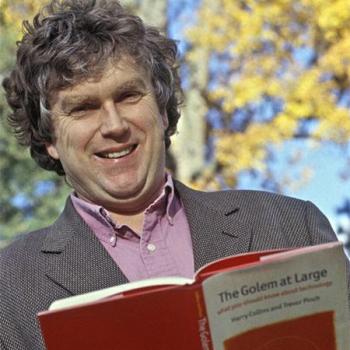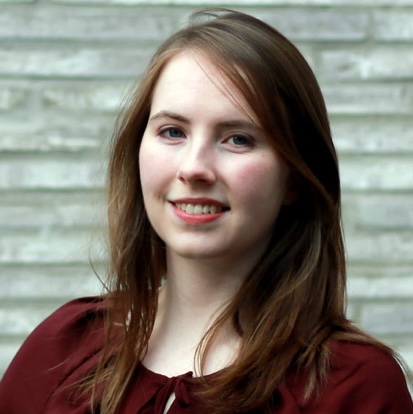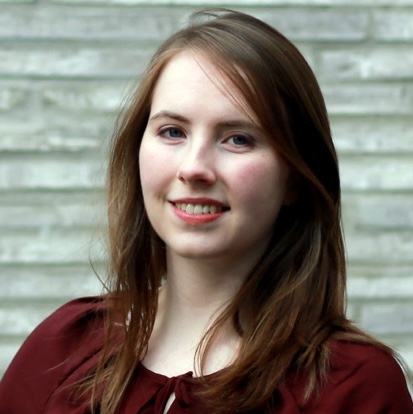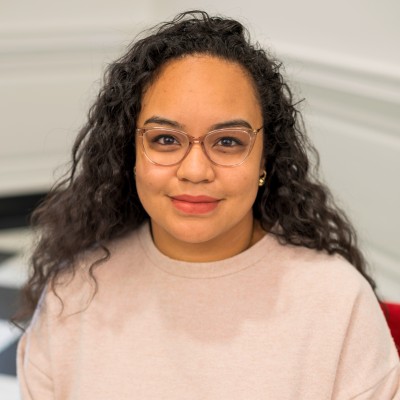A community for qualitative researchers.
QuIRI brings together researchers from across Cornell who teach, employ, and develop rigorous qualitative research methodologies. The qualitative and interpretive social science faculty at Cornell University is among the very best in the world. QuIRI creates opportunities for collaboration and excellence in interpretive social science research and training.
Cornell University’s QuIRI was established in 2020 to:
- Enhance the support for qualitative and interpretive social scientists at Cornell
- Increase the coordination and collaboration among Cornell faculty who teach, employ, and develop qualitative research methods
- Increase the visibility and awareness of qualitative methodological opportunities among the social sciences at Cornell
- Enhance the social science qualitative research methods training at Cornell
- Identify collaboration opportunities for qualitative researchers in other disciplines
- Enhance the external visibility of the strong qualitative research community at Cornell
QuIRI has several programs and initiatives to support qualitative research at Cornell. We have a monthly seminar series that explores methods, technologies, and research projects related to various kinds of qualitative research. We have a bi-annual small grants program for Cornell faculty, post-docs, and Ph.D. students to support multiple types of research-related expenses. Our faculty working groups provide resources to bring together qualitative researchers for writing and or reading groups. Our faculty summer institute is intended for faculty across Cornell interested in incorporating qualitative methods into their research programs. See the tabs above for more details.
To join the QuIRI e-list please send an email message with the subject line JOIN to QuIRI-L-request@cornell.edu
Previous Featured Researchers
Gili Vidan, Assistant Professor, Information Science, Bowers College of Computing and Information Science
Favorite qualitative methods book or article is “Something She Called a Fever: Michelet, Derrida, and Dust” by Carolyn Steedman.
Laura Tach, Associate Professor of Public Policy and Sociology, Brooks School of Public Policy
Favorite book or article is "Suspending Damage: A Letter to Communities" by Eve Tuck.
Katherine Sender, Professor, Communication, CALS
Favorite qualitative methods book or article is Bird, E. S. (2003). Chapter 4: Imagining Indians: Negotiating identity in a media world. In The audience in everyday life: Living in a media world (pp. 86-117). New York: Routledge.
Natasha Raheja, Assistant Professor, Anthropology
Favorite qualitative methods book or article is Cerwonka, A. and Malkki, L.H., 2008. Improvising Theory. University of Chicago Press.
Linda Shi, Assistant Professor, City and Regional Planning
Favorite qualitative methods book or article is Mukhija, V. (2010). N of One plus Some: An Alternative Strategy for Conducting Single Case Research. Journal of Planning Education and Research, 29(4), 416–426. https://doi.org/10.1177/0739456X10362770
Alexandra Blackman, Assistant Professor, Government
Favorite qualitative methods book or article is: Democracy in Translation: Understanding Politics in an Unfamiliar Culture (Frederic Charles Schaffer)
Erica Phillips, MD, MS, Associate Professor of Clinical Medicine, Division of General Internal Medicine Weill Cornell Medical College
Favorite qualitative methods book or article is Basics of Qualitative Research: Second Edition: Techniques and Procedures for Developing Grounded Theory 2nd Edition by Anselm Strauss (Author) and Juliet Corbin (Author).
Amelia Greiner Safi, Senior Research Associate, Department of Communication
Favorite qualitative methods books and articles are from Michael Q. Patton’s work, like Qualitative Research and Evaluation Methods.
Jenny Goldstein, Assistant Professor, Department of Global Development
Favorite qualitative methods book or article is currently a toss-up between Gibson-Graham, J.K. 2014. Rethinking the economy with thick description and weak theory. Current Anthropology 55(9):147-153 and Lave, R., Biermann, C., Lane, S.N. 2018. The Palgrave Handbook of Critical Physical Geography. London: Palgrave.
Tristan Ivory, Assistant Professor, Industrial and Labor Relations
In terms of a favorite qualitative methods article, I don’t think in terms of favorites most of the time. Still, I always appreciate work that revisits older methods or applies methods beyond the disciple/sub-field where they are most commonly employed.
Maureen Waller, Professor in the Department of Policy Analysis & Management and Sociology (by courtesy)
Favorite qualitative methods article is Mario Small’s “‘How Many Cases Do I Need?’ On Science and the Logic of Case Selection in Field-Based Research” published in Ethnography.
Sofia Villenas, Associate Professor in the Department of Anthropology
Favorite qualitative methods book or resource is Feminist Ethnography: Thinking through Methodologies, Challenges, and Possibilities, by Dana-Ain Davis and Christa Craven.
Evaluating Arts-Based Pedagogy: A Qualitative Study of Poetry in Public Health Education
Postponed to Spring 2026
291 Clark Hall
Register here or Join via Zoom
Jeanne Moseley
Professor of Practice in the Department of Public & Ecosystem Health, College of Veterinary Medicine and teaches in Cornell’s MPH Program at Cornell University
This workshop presents the qualitative evaluation design and methodology for assessing an innovative arts-based pedagogical intervention in public health education. "Poetry for Good Public and Ecosystem Health" was integrated into a collaborative Cornell-KCMC University global health program in 2024-2025, using poetry as a tool to build critical reflection practice among US public health and Tanzanian medical students. The workshop will focus on the methodological considerations and challenges of evaluating arts-based educational interventions. Participants will learn about: (1) designing qualitative research to capture the impact of creative pedagogical approaches, (2) developing evaluation frameworks for reflective practice and experiential learning, and (3) analyzing qualitative data from cross-cultural educational settings. We will share our evaluation aims, data collection strategies, analytical approach, and initial findings to illustrate how qualitative methods can be applied to assess novel curricular innovations. This case study offers insights into evaluating interventions where outcomes center on reflection, connection, and lived experience rather than traditional measurable metrics. This workshop is relevant for researchers interested in qualitative evaluation design, educational research methods, and arts-based or humanities-focused interventions in health education.
Jeanne Moseley is a Professor of Practice in the Department of Public & Ecosystem Health, College of Veterinary Medicine and teaches in Cornell’s MPH Program. Jeanne is currently passionate about developing curricular strategies for integrating the arts and humanities into public health education, research and practice. Through this work, she hopes to deepen learning, expand perspectives, stimulate interdisciplinary conversations, inspire critical reflection and prompt ethical critiques of public health interventions and programming. Prior to this position, Jeanne served as a Senior Lecturer in the Division of Nutritional Sciences and the Director of the undergraduate Global Health Program at Cornell University. For 16 years, she taught, developed and evaluated curriculum for the Global and Public Health Sciences major and University-wide minor in Global Health, working closely with faculty, staff and students from across the University to develop and offer experiential and engaged learning programs in global and public health.
Building Qualitative Surveys with Generative AI: How can we design open-ended survey questions that dynamically engage the participants and still serve our research goals?
Tuesday, Oct 28, 2025 (12:30-2 pm)
291 Clark Hall
Register here or Join via Zoom
Alexandra Werth
Assistant Professor in the Meinig School of Biomedical Engineering at Cornell University
Generative AI opens new possibilities for qualitative researchers, especially when integrated into survey platforms like Qualtrics. In this hands-on workshop, we will explore how large language models (LLMs) can be used to generate or refine open-ended questions in real time, allowing surveys to better adapt to participant input. You will learn about context engineering—a strategy for shaping how LLMs respond by setting up structured inputs and examples—and how it can be used to support research tasks like dynamic question generation.
We will also compare common ways to access LLMs (e.g., chat interfaces, APIs, local tools), and discuss how those choices affect what you can do and how easily you can integrate these tools into your workflow. Through a live demo and guided build, participants will create their own dynamic Qualtrics survey using the OpenAI API.
Please bring a laptop and ensure you have access to a Qualtrics account. No prior coding experience is required. We will end with a discussion on how genAI tools are changing how researchers think about concepts like reliability, validity, and trust.
Alexandra Werth is an Assistant Professor in the Meinig School of Biomedical Engineering at Cornell University, where she leads the BEEAR Lab (Biomedical Engineering Education, Assessment, and Research). Her research focuses on engineering education, with an emphasis on developing evidence-based teaching methods, assessment tools, and AI-enhanced strategies to support authentic learning environments. She holds a Ph.D. in Electrical and Computer Engineering from Princeton and previously conducted postdoctoral research in physics education at the University of Colorado Boulder.
Data Storytelling with Maps
Wednesday, Oct 1, 2025 (3-4:30 pm)
291 Clark Hall
Register here or Join via Zoom
Gabriella Evergreen
Research Data Librarian at Cornell University Library
Maps are a powerful and engaging way to visualize qualitative data and spatial relationships. They can be used to enrich and communicate research in the arts, humanities, and social and life sciences, shaping public opinion and informing policy. Digital mapping tools make it easy to create custom maps and incorporate text and multimedia elements in narrative form, allowing us to contextualize history, trace routes across time and space, and tell stories about the physical environment and our relationships to it.
In this hands-on workshop, we’ll build a foundational understanding of what makes a well-designed map, discuss ways to incorporate maps into your research, and explore a few online mapping tools (StoryMap JS, Google My Maps, and ArcGIS StoryMaps). Join us to learn how you can use maps to enrich and communicate your research. This workshop is open to all audiences, but may be especially relevant to graduate students researching movement.
Presented by Cornell University Library in partnership with the Einaudi Center Migrations Program and the Qualitative & Interpretive Research Institute. This event is supported by the Migrations Program, part of the Mario Einaudi Center for International Studies, and the Mellon Foundation’s Just Futures Initiative
Gabriella Evergreen is a Research Data Librarian in the Research Data and Open Scholarship (RDOS) group within Cornell University Library. Gabby assists the Cornell community in managing and sharing research outputs. Gabby provides data curation services and consultation as well as outreach and instruction around data management and stewardship.
Previous Seminars
Beyond Metrics: Qualitative Approaches to Understanding Intervention Effectiveness
May 7, 2025
David Scales, MD, PhD — hospitalist and sociologist, Weill Cornell Medicine
Research Design & Codes of Practice for Maximizing the Impact of Energy and Climate Social Science
April 15, 2025
Benjamin K. Sovacool, Professor, Department of Earth & Environment at Boston University
Mixed Methods Research: Integrating Qualitative and Quantitative Methods
March 6, 2025
Ida Djenontin, Assistant Professor, Department of Geography, Penn State University
To Collaborate or Not Isn’t the Question: Who Do You Care to Collaborate With?
November 7, 2024
Peter Little, Professor and Chair of Anthropology, Rhode Island College; President of the Northeastern Anthropological Association
Feminist Mapping and Icon Design
October 4, 2024
Meghan Kelly, Assistant Professor, Geography and mapmaker at Syracuse University
Sista Circle Methodology as Method and Intervention
March 25, 2024
Jaleesa Reed & Jocelyn Poe
Applied Ethnography for Community Health Assessment: A Case Study on School Foods
March 1, 2024
Elizabeth Fox, 2023 Trevor Pinch Award Winner
QuIRI Student Panel!
February 1, 2024
Joseph Lasky, Ph.D. Candidate, Government/ Emily Hillenbrand, Ph.D. Candidate, Global Development/ Sang-O Kim, Ph.D. Candidate, City & Regional Planning
From Chinatown to Every Town: How Chinese Immigrants Have Expanded Restaurant Business in the United States.
November 16, 2024
Dr. Zai Liang, Distinguished Professor and Chair of the Department of Sociology in the Department of East Asian Studies at SUNY-Albany
Getting Your Findings Out to Non-Academic Audiences
October 27, 2023
Karl Pillemer, Hazel E. Reed Professor in the Department of Psychology and Professor of Gerontology in Medicine at the Weill Cornell Medical College
A Matter of Interpretation: The Letter of the Law and Complainants’ Lived Experiences of Discrimination under Title IX
September 7, 2023
Vida Maralani, Associate Professor, Department of Sociology
Insight-Out: Political Phenomenology and the Trials of Liberal Democracy
May 5, 2023
Uriel Abulof, Visiting Associate Professor, Israel Institute, Department of Government
Working Group Panel
April 13, 2023
Leila Wilmers, Sociology and Gili Vidan, Information Science
View the presentation here.
On Interviewing
March 24, 2023
Lee Humphreys, Communication; Linda Shi, City and Regional Planning; and Sharon Sassler, Brooks School of Public Policy.
View the presentation here.
Rocking Qualitative Social Science
February 3, 2023
Ashley Rubin, Associate Professor, Sociology, University of Hawaii
View the presentation here.
On Writing
November 4, 2022
Katherine Sender, Communication and Feminist, Gender, and Sexuality Studies Program
View the presentation here.
Writing resources from the presentation can be found here.
Immigrant Worker Precarity
December 2, 2022
Shannon Gleeson, ILR
View the presentation here.
Her new book is Scaling Migrant Work Rights.
Her newest project explores Temporary Immigration Status, Race, and Workplace Precarity.
Social Inquiry and Bayesian Inference: Rethinking Qualitative Research
Co-sponsored by QuIRI
November 10, 2022
Tasha Fairfield, Department of International Development at the London School of Economics
Big Data Meets Thick Description: Thinking Interpretively with Computational Data
1-2pm, October 7, 2022
Chelsea Butkowski, Ph.D. '22, Communication, and Ph.D. Student Aspen Russell, Information Science
View the presentation here.
2022 Trevor Pinch QuIRI Innovation Awardee Presentation
September 16, 2022
Gilly Leshed, Information Science
View the presentation here.
In-person Reception
May 13, 2022
Learn more about QuIRI, celebrate the work of fellow qualitative researchers from across campus, and discuss possible collaboration opportunities in person!
Graduate Researchers Panel
April 1, 2022
Negar Khojatest, Information Science; Kendra Kintzi, Development Sociology; Yoselinda Mendoza, Sociology; Elif Sari, Anthropology; Gloria Xiong, Government; & Daniel Ferman-Leon, Anthropology.
This seminar showcases graduate student researchers across the university who have received support from QuIRI.
Collaboration in Qualitative Research
Mar 11, 2022
Amelia Greiner-Safi, Associate Professor of Practice, Public Health, Cornell Vet; Sharon Sassler, Professor, Brooks School of Public Policy; Eli Friedman, Associate Professor & Chair Department of International and Comparative Labor, ILR; and Diane Bailey, Professor, Dept of Communication
View the presentation here.
Photovoice
Feb 4, 2022
Katie Foriella, Assistant Professor, Public Health, Cornell Vet, and Elizabeth Fox, Assistant Professor of Practice, Public Health, Cornell Vet.
View the presentation here.
Integrating Qualitative Social Science and Storytelling for Global Impact
December 10, 2021
Cornell Alum Raul Roman, Ph.D. ’04, Founder & Executive Director, Dawning.org
View the presentation here.
Participatory Action Research Panel
November 12, 2021
Richard Keily, Office of Engagement Initiatives at Cornell; Karen Purcell, Cornell’s Lab of Ornithology; Rana Zadeh, Dept of Design & Environmental Analysis at Cornell; Bobby Wilson, Metro Atlanta Urban Farm; Makeda Cheatom, WorldBeat Cultural Center; and Phyllis E. Turner, Community Science Collaborator, Metro Atlanta Urban Farm.
-- Noise Project: https://noiseproject.org
-- Noise Project working agreements: https://power30icbos.blogspot.com/2019/05/our-icbo-working-agreements.html
-- Non-negotiables for doing research and evaluation in our communities (Community Review board of Non-negotiables):
https://power30icbos.blogspot.com/2019/08/download-our-icbo-community-review.html
-- Meaningful collaborations (a workbook for Community-based Organizations): https://drive.google.com/file/d/1xxyUdiE1vqnH2_pQeYCRfHwGOyFzECxb/view
-- Partnerships for Impact (a workbook for STEM Institutions): https://drive.google.com/file/d/1siAvFwP4ddDy3SmVuxTVgWj7WSZvRRCE/view
-- View the presentation here.
QuIRI Networking Event / Working Group Mixer
October 1, 2021
Meet the QuIRI leadership team and fellow QuIRI affiliates for an informal networking event. If you are interested in becoming a member of a QuIRI Working Group, this event is for you!
2021 QuIRI Innovation Award: Digital Due Process Clinic
September 10, 2021
Malte Ziewitz, Assistant Professor, STS
View the presentation.
2021 CCSS QuIRI Working Groups Panel
May 14, 2021
View the presentation.
Focus Groups and Best Practices
April 23, 2021
View this presentation and view materials from this presentation.
Software for Qualitative Research
February 22, 2021
Florio Arguillas and Lynda Kellam from CCSS present various helpful software for qualitative research. They discuss tools for collecting qualitative data through recording and transcription software and note-taking software. They discuss tools for analyzing qualitative data and the key differences between software packages. Lastly, they describe software for writing up qualitative research. View this presentation.
Qualitative Data Repository Workshop: Sharing and Archiving your Qualitative Research
December 4, 2020
Lynda Kellam of CCSS, and Sebastian Karcher, of Syracuse University’s Qualitative Data Repository, discuss opportunities for archiving qualitative research. This workshop is intended for qualitative researchers at all stages of their careers who are interested in learning more about SU’s Qualitative Data Repository (QDR), of which Cornell is a member. The workshop explores opportunities for Cornell qualitative social scientists to engage in open science practices. View this presentation.
Indigenous Ways of Knowing and Transdisciplinary Research
October 23, 2020
Karim-Aly Kassam, Natural Resources and the American Indian and Indigenous Studies Program
Digital Qualitative Methods During COVID
October 9, 2020
QuIRI Director Lee Humphreys introduces current QuIRI program initiatives and presents “Digital Qualitative Methods During COVID,” with ideas and strategies for different qualitative methods that utilize digital communication technologies.
Small Grants Program
Applications due September 26.
The CCSS QuIRI Small Grants Program is intended to provide up to $2,000.00 in funding for qualitative research expenses (such as participant compensation, travel for data collection, equipment, transcription software, research assistants etc.) to Cornell faculty, post-docs, & doctoral students in the social sciences. Priority will be given to projects that may lead to other funding or help move a project to completion and/or publication. Individual applicants will not be awarded more than once per project per year. Graduate students will be expected to participate in a panel in the following year to present their findings. Applicants are also expected to note which qualitative courses they have taken.
Graduate students must have successfully completed their A exam, or be scheduled to take it in the current semester (e.g., Fall 2025), in order to apply for and receive a grant. Applications submitted prior to A exam completion (outside the current semester) will not be accepted, and funding cannot be deferred to future semesters.
Faculty who apply to this should not be dissuaded from applying to the CCSS Research, Conference, or Roper Center Grants. These smaller amounts of funding are different from other CCSS funding and are intended to help qualitative scholars in their research.
Your application should include your:
- Name
- Rank
- Department(s)/unit(s)
- Project title
- 500-word description of the project
- Budget
- Budget justification
- Relevant Qualitative Methods course
- QuIRI talk(s) attended
- 3-page CV
- For faculty: Account number for funds transfer, Financial Staff Representative’s name and email
- For students: Student ID
- If you are a graduate student, PhD letters of recommendation from committee chairs should be emailed directly to quiri@cornell.edu.
All materials should be compiled into a single pdf for submission.
Questions about the process can be sent to quiri@cornell.edu.
Faculty Working Groups
The QuIRI Faculty Working Groups Program is intended for faculty-led writing and/or reading groups of social science faculty who employ qualitative research methods.
Proposed working groups:
- Can be themed around specific methods, analytical approaches, or software and methods training.
- May also explore theoretical or empirical synergies.
- Should include four to five members per group, including the faculty leader, and ideally at least two members from different departments/units.
- May have doctoral students, although a faculty member must lead.
Each group member will receive up to $500, awarded individually or as a group, for research materials/equipment, participant compensation, software, or other group costs.
Before filling out your application, be sure to have:
- Your department's financial liaison information
- A list of all your participants, their positions, colleges, departments, and ID numbers if PhD students
- All participants' CVs
- A description of the goals or purpose of your working group
- A tentative meeting schedule for the calendar year
- A budget
- A budget justification
Applications open Fall 2024.
The Trevor Pinch QuIRI Innovation Award
To donate to this award: Click Here (Please specify that the gift is in memory of Trevor Pinch)
The death of Professor Trevor Pinch deeply saddened QuIRI in December 2021. He was a founding member of the QuIRI leadership team and a generous advocate and teacher of qualitative methods. He will be sorely missed. In honor of his creative spirit and out-of-the-box thinking, we are pleased to announce that the QuIRI Innovation Award is now called the Trevor Pinch QuIRI Innovation Award. QuIRI looks forward to continuing his legacy of teaching, developing, and promoting innovative, interpretive research across the social sciences.

About the Award
The Trevor Pinch QuIRI Innovation Award is given to a Cornell faculty member who demonstrates innovation in developing, using, or teaching qualitative methods.
The recipient will give the Trevor Pinch Innovation Award talk in Fall 2026 and will also receive a $500 honorarium.
To apply, please submit your CV and cover letter explaining the innovative collaboration, project, course, or workshop, along with the name and email of a colleague or supervisor who can provide a letter of support.
Applications are due by May 15, 2026, and should be sent via email to quiri@cornell.edu
2025 Award Winner
We are pleased to announce that the 2025 Trevor Pinch QuIRI Innovation Award has been awarded to Dr. Alex Werth,
Assistant Professor in the Meinig School of Biomedical Engineering, for her innovative use of qualitative methods in assessing student learning in engineering education.

Previous Winners
- 2023: Dr. Elizabeth Fox, Assistant Professor of Practice, Department of Public & Ecosystem Health
- 2022: Dr. Gilly Leshed, Senior Lecturer in Information Science at Cornell
- 2021: Malte Ziewitz, Assistant Professor, Science and Technology Studies
Previous Small Grant Award Winners
Previous Working Group Award Winners
Jaleesa Reed, Assistant Professor, Human Centered Design, College of Human Ecology
Jaleesa Reed is in her first year as an Assistant Professor in the Department of Human Centered Design, following a two-year stint as an Assistant Research Professor at Cornell. Dr. Reed received her PhD in 2021 from the Department of Textiles, Merchandising, and Interiors at the University of Georgia. Her research is interdisciplinary, focusing on connecting human geography, feminist studies, and merchandising in the fashion and beauty industries. Recent projects include an investigation of Black beauty supply stores in Syracuse and an exploration of beauty, femininity, and place-making in Los Angeles.
Fun fact about Jaleesa? She sits on the Board of Directors for the Costume Society
of America!
Did your research benefit from the Qualitative and Interpretive Research Institute (QuIRI)?
Please acknowledge QuIRI and CCSS with the following language when publicizing or presenting your research results: “This research was supported by the Qualitative and Interpretive Research Institute in the Cornell Center for Social Sciences.”






